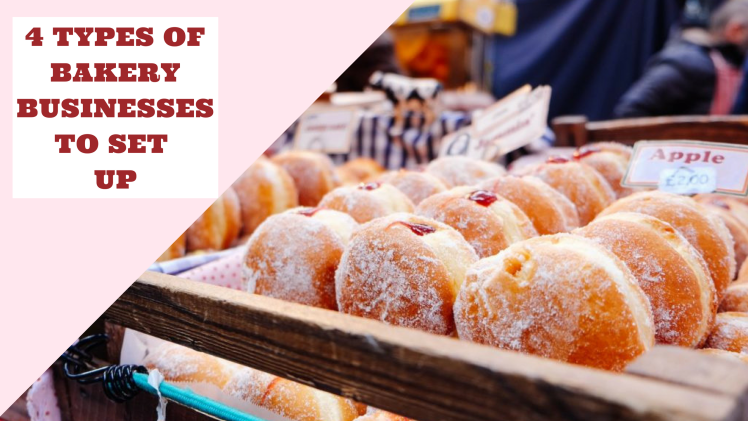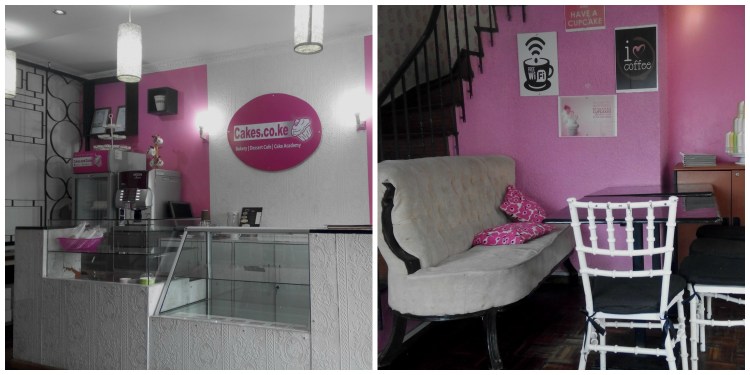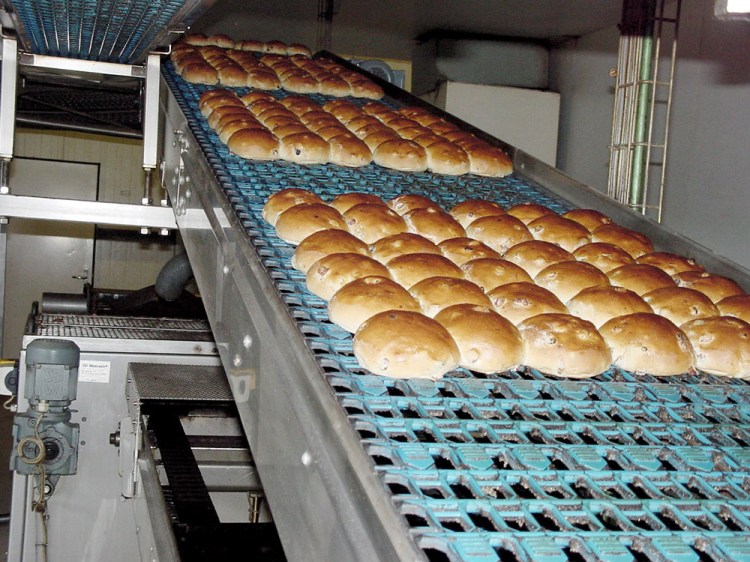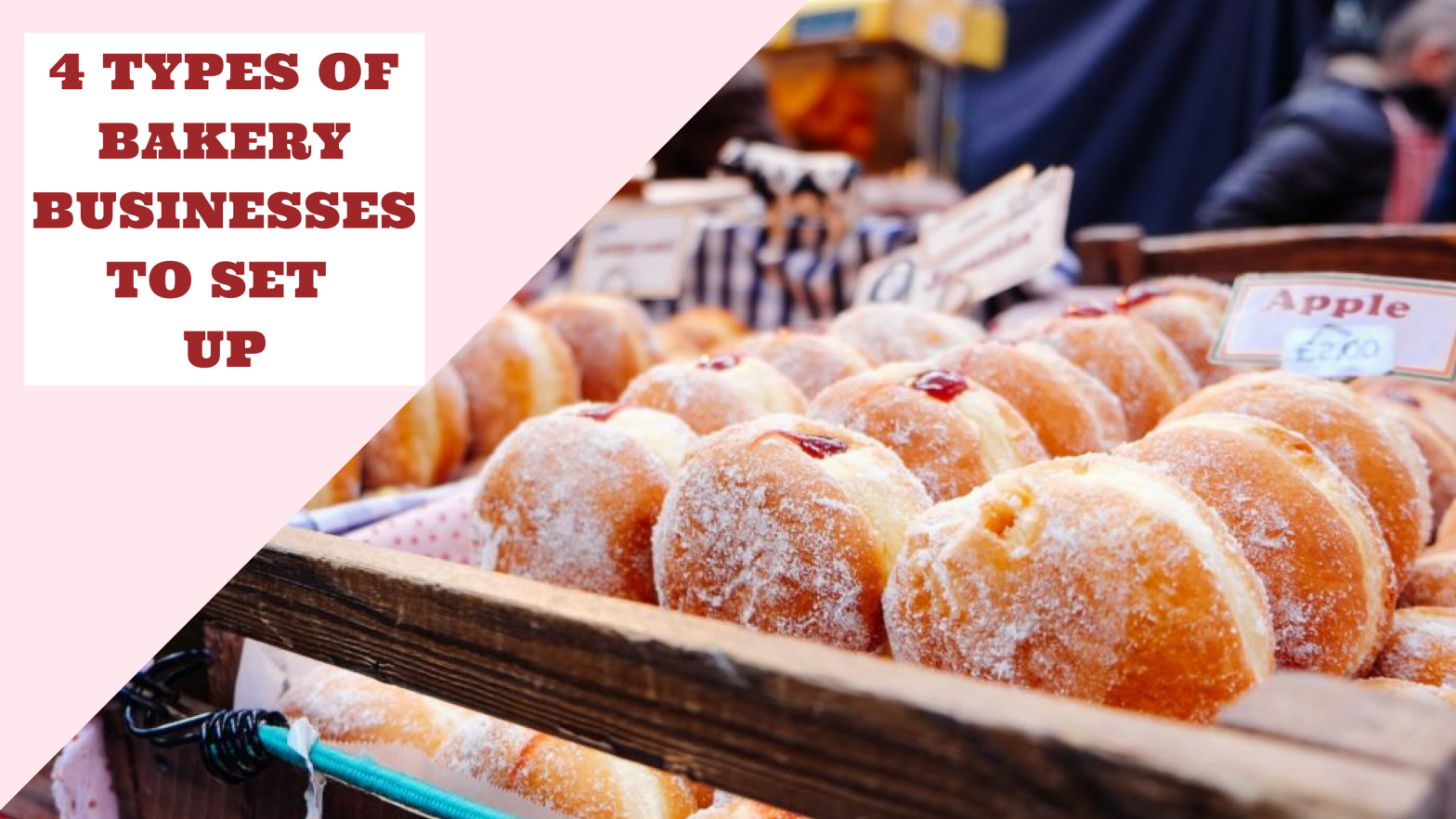The baking industry in Kenya is really growing in scale and popularity; this is because more consumers in Kenya are more willing to buy cakes for most occasions and at a higher price than ever before. Cake is a luxury that has become a ‘necessity’ in most occasions and functions; especially in major metropolitan cities, and for certain consumers.
In turn; baking for business has now become something popular and acceptable to individuals in Kenya. As a Baker or Bakerette looking to start a baking business; you may be wondering what types of business set-ups to choose from when it comes to the baking industry.
To watch the video on the same topic; click here.
Today I will highlight 4 main types of set ups you can choose from, this will help you to sit down and plan out the first steps to take when you’re starting out, with focus on your particular baking business set-up.
Home-based/online bakery
For most bakers who are starting on a small budget; this is the best way to start – from your own home kitchen. Once you have developed your baking skill and recipes; you can start baking in your home kitchen and delivering products to your clients. The benefits of this set up include the lower cost of expenses (e.g. no rent to be paid at first) and it helps you get a foot-hold into the industry while starting out lean. You can slowly grow your client base at home. It is advisable though, to have a long-term plan on how to move from your home kitchen to another set-up within a year or two at the most.
The disadvantages of this set up can be the fact that some people like to visit a bakery to talk to the baker for larger, more detailed or custom orders. This shouldn’t worry you too much though – you can always plan a meet-up with your client in a location that can work for both of you. With home-based set ups, you also have to work harder in your marketing since you can’t rely on walk-ins and you have to build trust with potential clients; this means that your marketing strategy has to be quite consistent, very innovative and effective. Another challenge for the baker; is separating home ingredients & equipment and those for your business. In this particular case; you can get one shelf or cabinet (preferably a lockable one) where you store the ingredients and equipment for your baking business. This will help you with stock control, stock taking and costing.
The reason why I insist on finding a way to transition to another set up (if you want to seriously grow your baking business) is that legally, by Kenyan city council laws; unless you have another kitchen structure separate from your home kitchen, it’s illegal to run a business from a home kitchen that’s adjacent to sleeping areas. This should just motivate you to either move to a shop set-up over time or if you have the budget, space and/or land – build a bakery kitchen workshop and/or shop in the compound, but separate from your home (this is what we did ^_^ ). You can also choose to make an additional room on the side of your house – that doesn’t have direct access to your house – but can use the same wall as a bakery kitchen as well. Click on this link for some tips on starting a home-based baking business.
Retail Bakery Shop

This bakery business set-up is a great way to set up your business if you have a good budget for start-up capital and a prime location. The advantages of this set-up are that you not only get custom orders in various ways including from online orders; you also get the benefit of walk-in clients in the area. This is why being in a prime location is important.
The one disadvantage of this type of set-up is when it comes to the baked products display. In case of slow sales periods; cake slices or any other pastries on display may be left over at the end of the day and you may have to discard them; you can resell them the next day, but this over time may compromise the quality of your products offered for sale. Overhead costs (e.g. rent, utilities, payroll, etc.) for this set-up also tend to be higher than a home-based set-up; and since they are consistent and have to be paid each month – you have to make sure that your business always makes sales in order for it to stay open. Once again, marketing is also very important in this particular set up as well.
Factors to consider in such a bakery set-up:
Equipment required: you need production equipment such as an oven and mixer, you also need refrigerated display units and coolers to store your baked good and beverages (if offered in your menu).
Labor: you’ll need at least 2 – 3 individuals or more (e.g. a baker, front cash person and possibly a delivery person) depending on the production output or sales you want to make per day.
Store-front Aesthetics: since you want walk-in customers, you have to be concerned about the overall look of your shop outside and in the front cash/reception area. It should be pleasing to potential customers, this will attract them to enter and buy.
Products and Services to offer: you will of course have a cake menu for your clients; however, for this set up you can also choose to have additional products and services as well to maximize the space and increase sales. You can choose to have a coffee-shop style set-up where you offer hot beverages as well. You can also decide to include a hot meals menu like a restaurant as well. This will depend on your startup budget and space you have in the shop.
Location: You should consider if it’s an area with a lot of foot traffic. Is this an area where you will attract your target market? Consider the businesses and buildings around you e.g. is there a public toilet nearby or dump site? People may be less likely to enter the area if there is a noisy pub/bar around or a Fish shop, ^_^ these are factors that could affect your bakery business. Accessibility is also a factor e.g. is it near the road or near a stage area for public vehicles? Is the infrastructure developed? (e.g. roads, internet/connectivity, water, electricity, etc.)
Legal requirements: you have to be up to date with your business and health permits and licenses required to operate your business at all times.
These are some of the things to look out for when setting up a retail bakery shop. Great examples of such bakery set-ups in Nairobi are Joybells Cake Centre in Buru Buru, Cakes and Muffins on Ngong Rd Prestige area, Mudi Cakes on Ngong Rd Adams area, etc.
Custom Cake Shop
The difference in this setup as opposed to the retail bakery shop; is that this set up deals with custom orders only. Walk-in customers won’t find ready to sell products in the shop; they walk in to order cake to be picked or delivered later. The advantage of this type of bakery setup is that any order being worked on has been paid for – it has a specific customer who will collect it and clear payment. This eliminates the issue of having left-over baked products in the refrigerated display.

On the flip side of this; it means that you have to work hard on marketing and branding, grow your business in a way that ensures a steady stream of orders that will guarantee daily sales. Location is still important since walk-in customers are still welcome to come in and place orders as well.
The factors to consider in this type of setup are the same as the retail bakery shop. The only difference is that the products offered can just be a menu of cakes, there’s no need to consider a hot kitchen or other services from the kitchen. However, you can still choose to have a sitting area and beverages to serve any clients who may be waiting to pick a cake order. A great example of such a bakery setup in Nairobi is Cakes.co.ke in Kilimani; this is a custom cake shop that has a lovely sitting area with the option of purchasing a cup of coffee as you wait to pick an order.
Industrial Bakery

This baking business setup requires a large amount of startup capital if you decide this is how you would like to setup your baking business. The pros of this setup are that you don’t have to worry about the aesthetics of the bakery since you don’t rely on walk-ins. This bakery also has the potential for maximum growth if you market it well and you’re able to produce at capacity daily, you can make lots of profit this way. When you choose a niche (e.g. cookies or breads and scones) and you’re able to reduce costs of production, this can be a very profitable setup. The cons are that you do have to market properly to the right clients e.g. schools, institutions, supermarkets and shops who you will sell to in bulk; if you don’t market properly it will be a huge loss to you. You also have to figure out the best way to distribute your products e.g. do clients collect? Do you have to distribute to your clients? Should you have outlets for distribution and other distributors as well e.g. bicycle and motorcycle riders.
Factors to consider in this setup:
Equipment required; you need large ovens and mixers; you may also need plant equipment for efficiency e.g. dough mixer and dividers, etc.
Working Capital: You have to have enough working capital to keep daily operations going on for long periods of time. This is because payment periods from your clients may be longer than expected (e.g. 30 – 90 days) and you have to keep producing until the time payments can be made.
Labor required: you will need a large workforce in order to meet demand and production goals e.g. 1,000 loaves a day. You need bakers, office/administration personnel, book-keeper or an accountant, etc.
Bakery Premise: a large area/premise which can handle your production goals per day, you may have to look for a go-down or factory style space.
Legal and industry requirements: you have to be up to date with your business and health permits and licenses required to operate your size of business at all times. You also have to have products that have been certified to be sold in retail outlets such as supermarkets e.g. KEBS certification & Barcodes.
Distribution method: the various ways you will get your products to your clients e.g. Trucks, getting outlets to drop off, bicycle or motorcycle distributors, etc.
Example of these setups in Kenya, are bakery brands such as Kenblest, SupaLoaf, Festive, Broadways, etc.
I hope this post has been helpful to you if you’re looking to set up a baking business in Kenya soon. All the best and feel free to leave a comment or question below.
If you need guidance when starting or streamlining your small bakery business. Consider joining the Amari Baking for Profit Program; for details of our Online Mentorship Program – Click here
If you liked this post or found it helpful; please share it to your networks – it may be of help to someone else ^_^
Happy Baking and lots of success in your business as well!


Interesting. I was looking for bakery stock management tools when this popped up and I am still looking for these tools. Also, I am looking for a baker with basic business start-up training
LikeLike
Hi, you can use Quickbooks; we use their software and it works well when set up correctly. For Business startup training; we offer a 3-month online baking for profit mentorship, check details here = https://amaribakery.com/amari-online-mentorship/ (we currently have a January 2022 intake ongoing)
LikeLike
how much are you charging for the training?
Contact me 0729459800 whatsapp the link to you website as well
LikeLike
Hello, someone will reach out to you on Whatsapp. For the training; if you mean the business training, here are details = https://amaribakery.com/amari-online-mentorship/
LikeLike